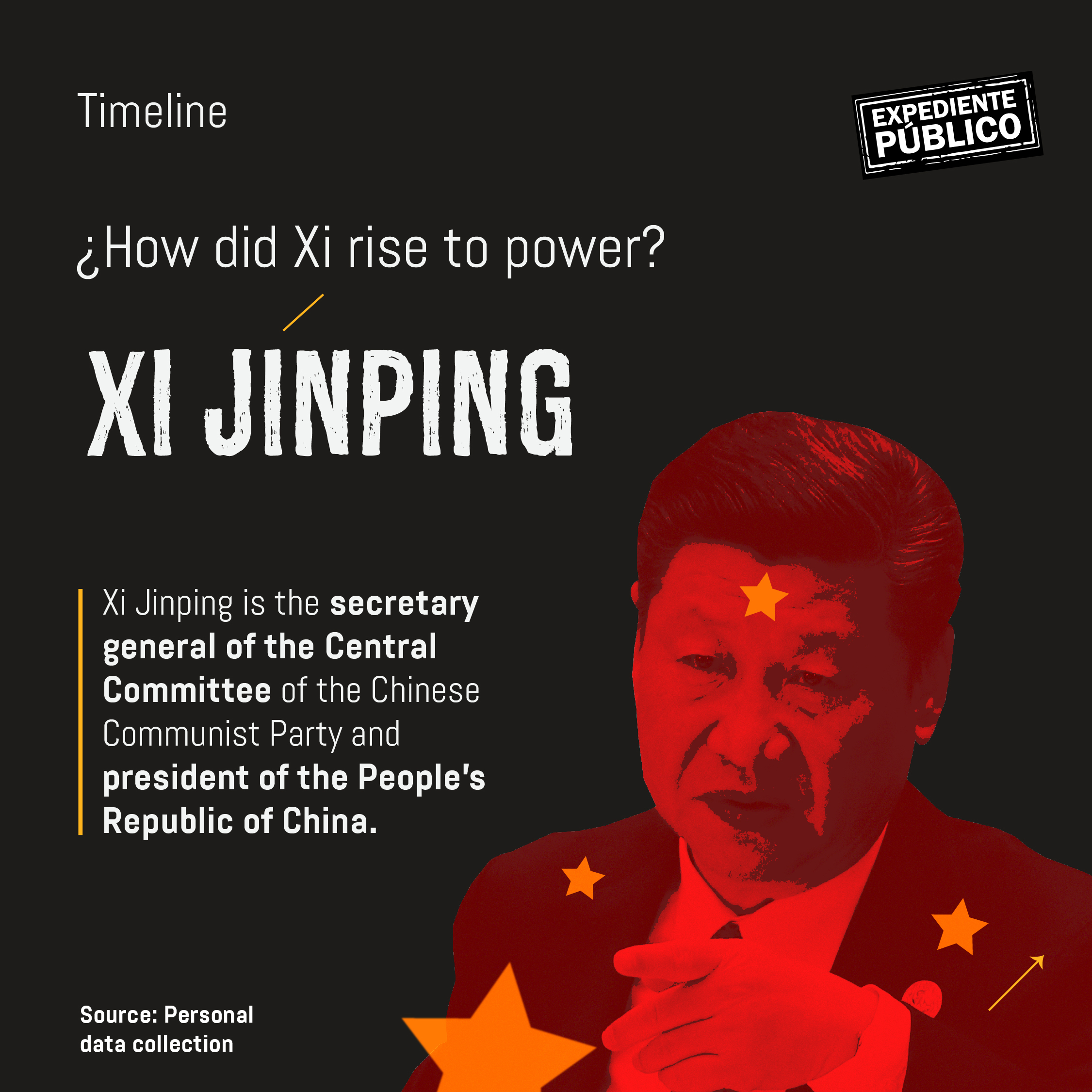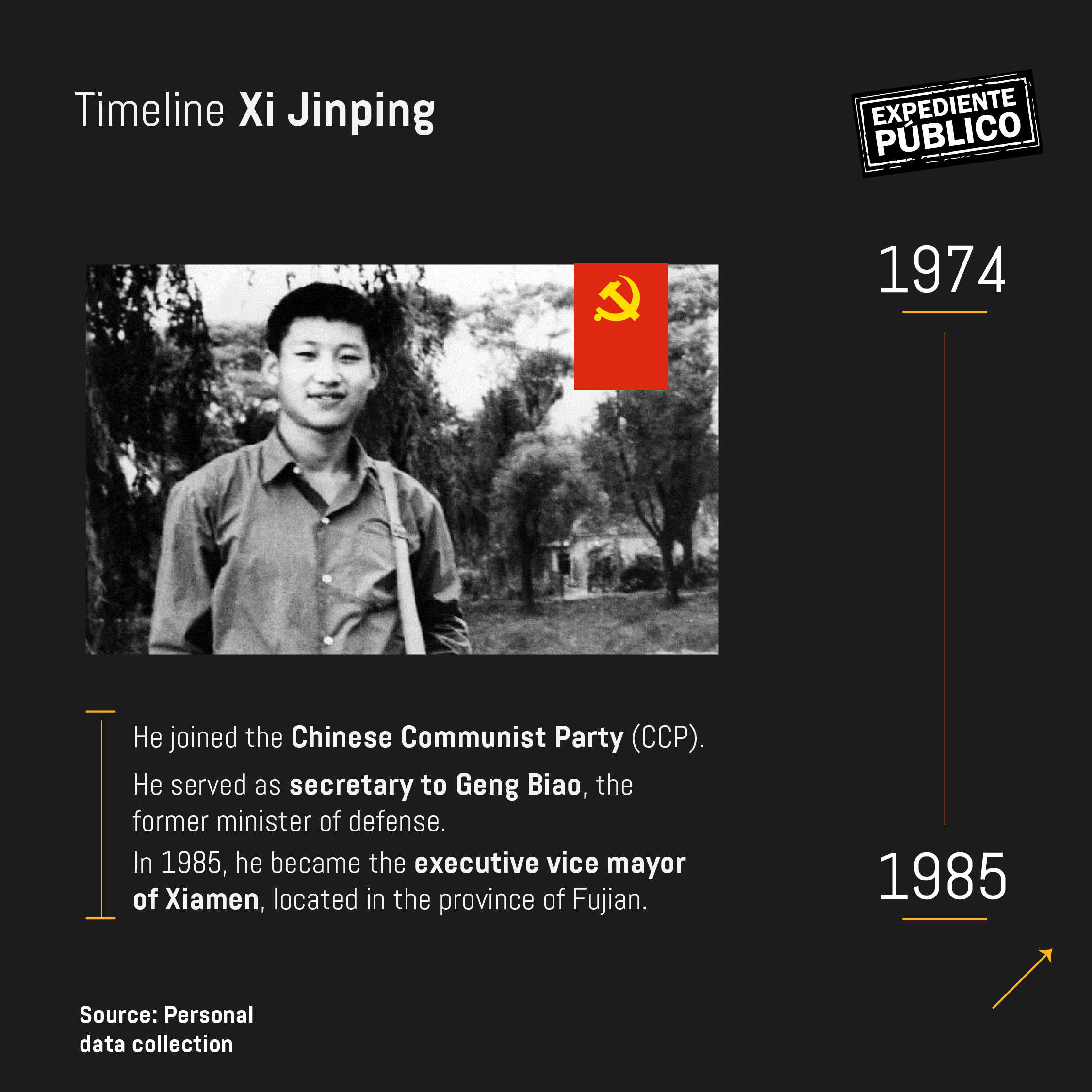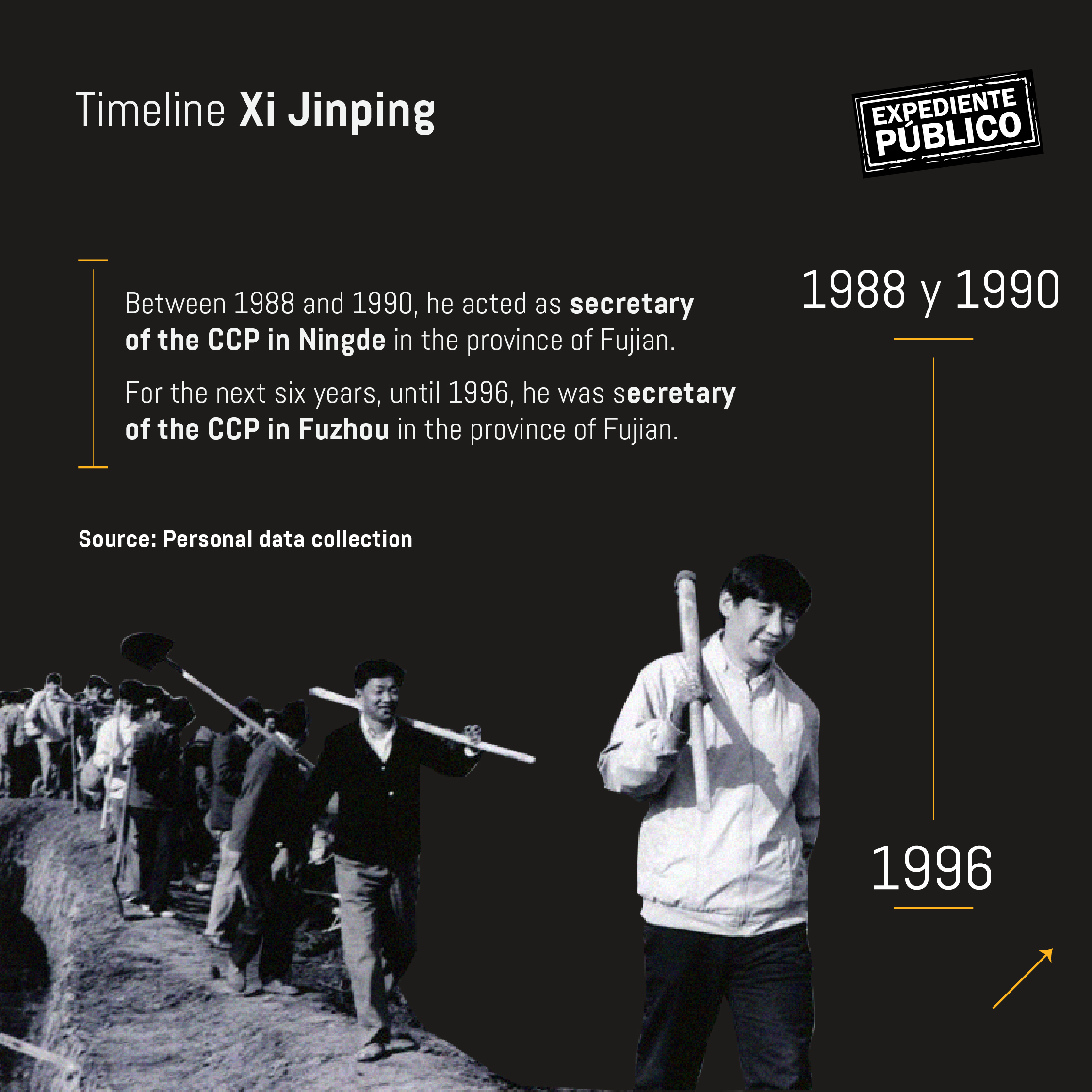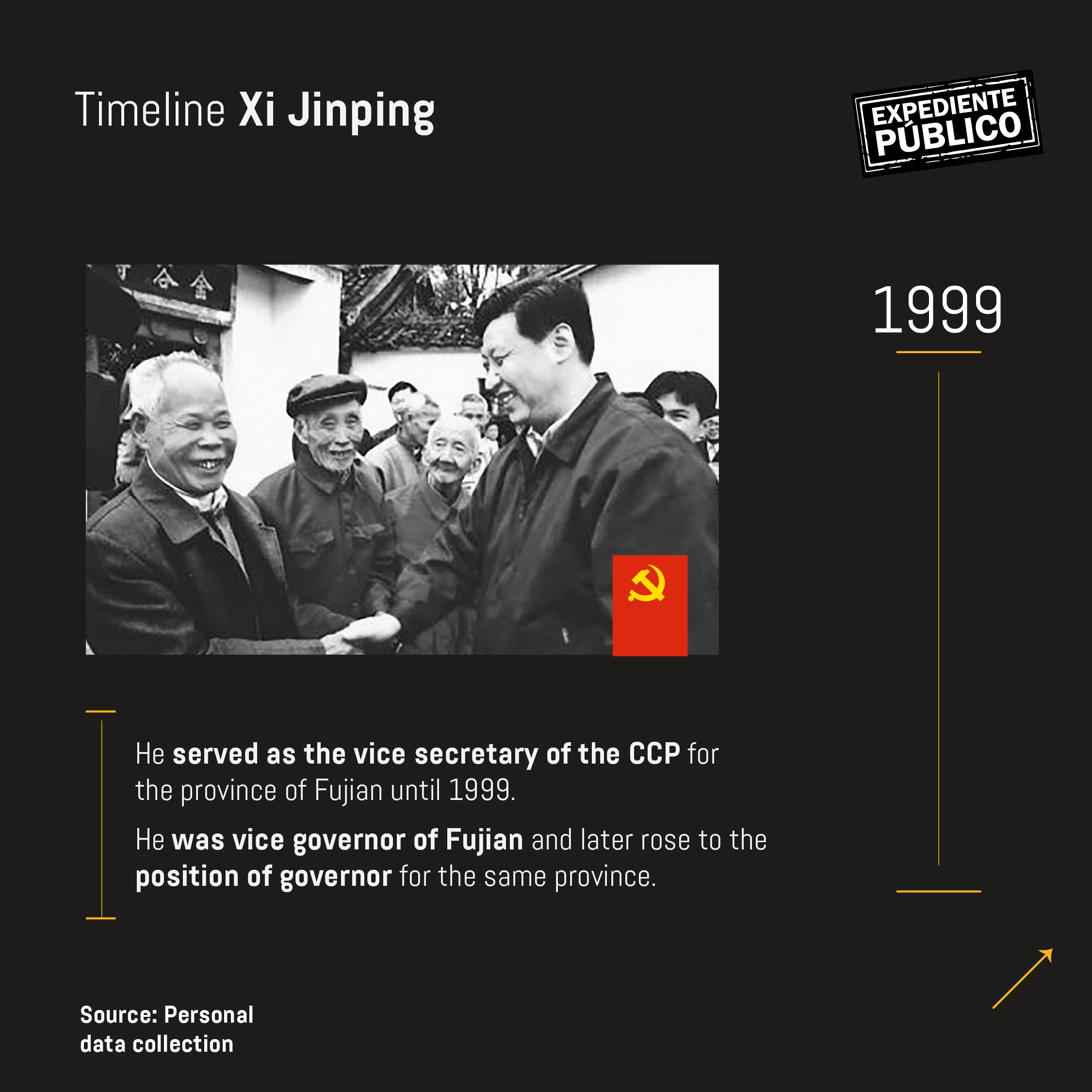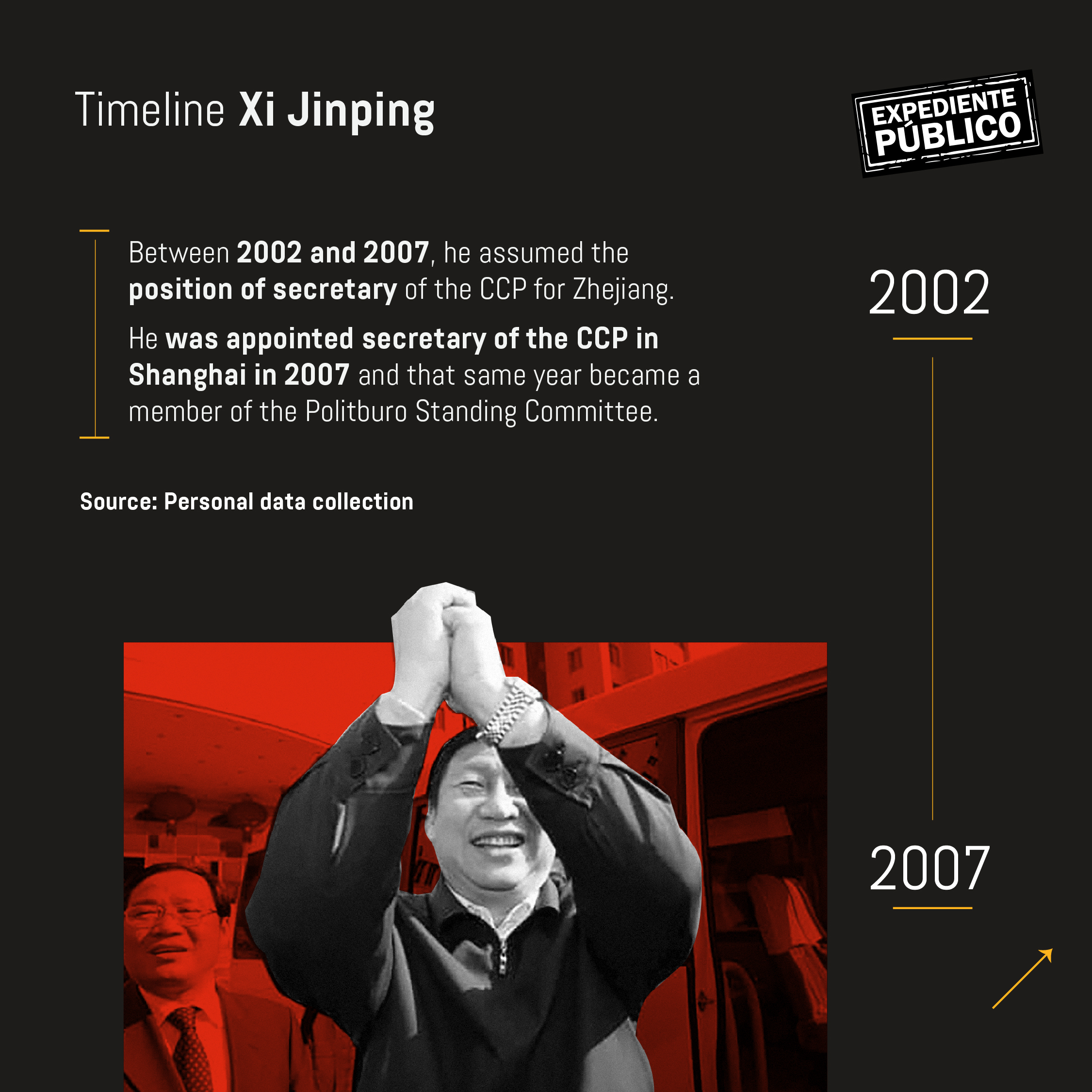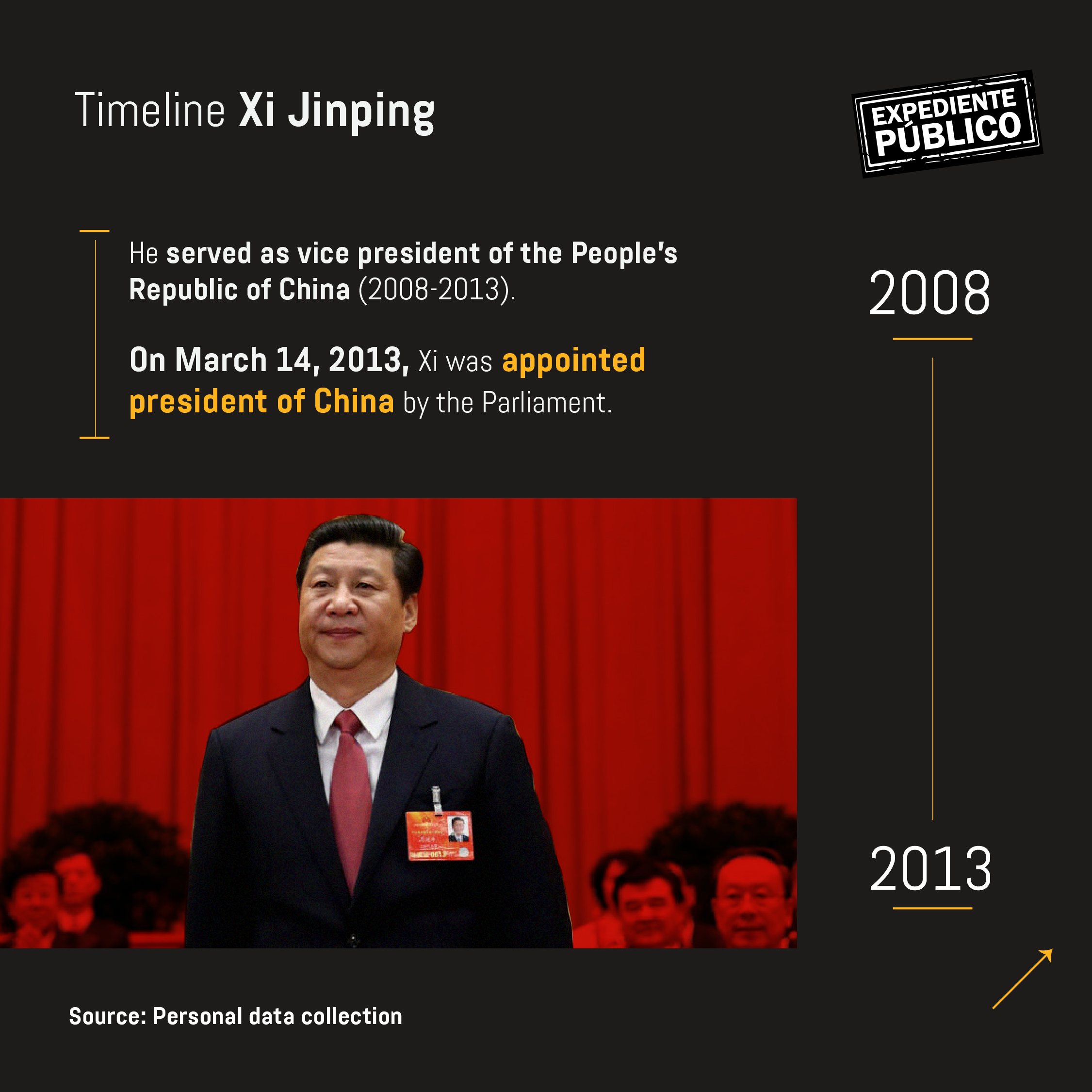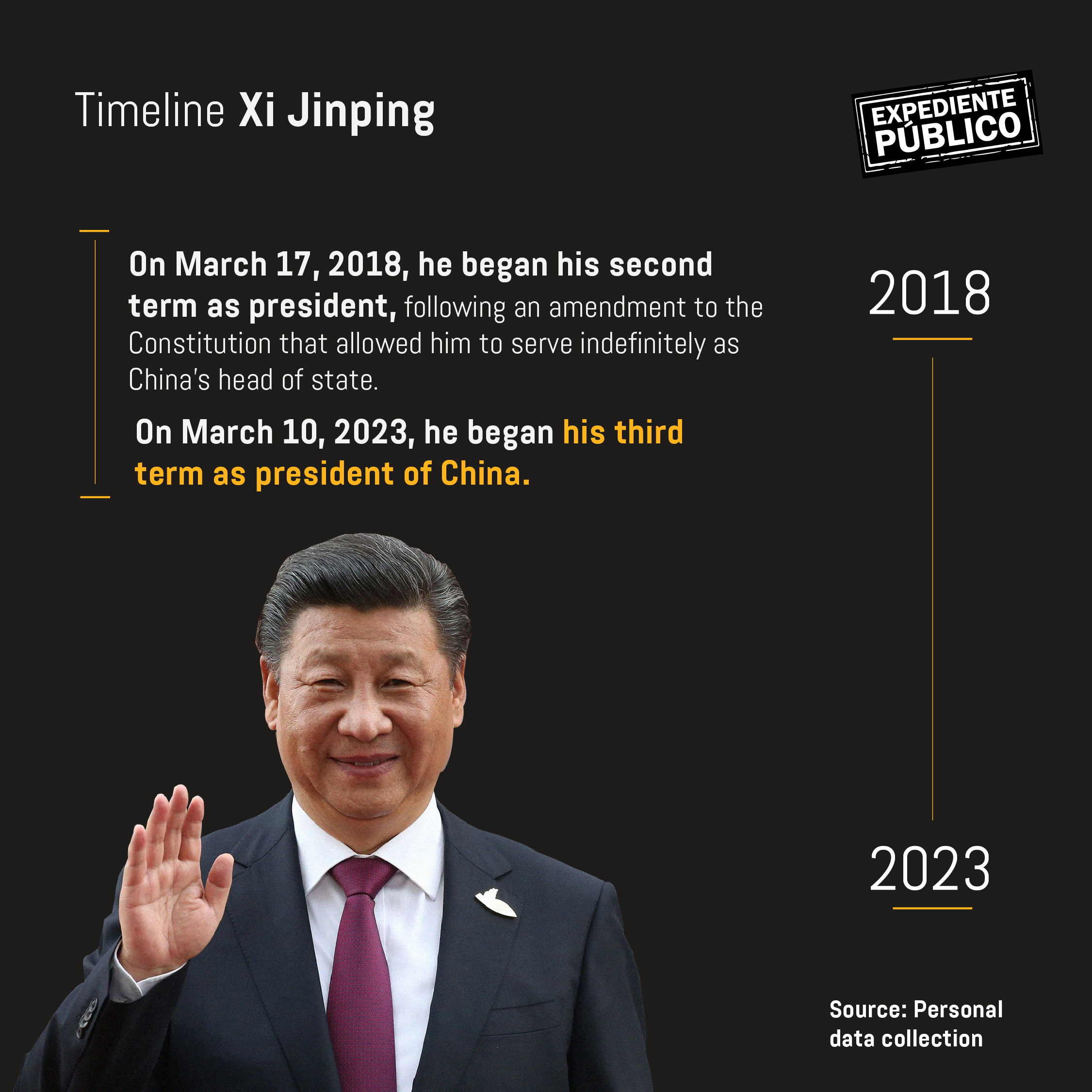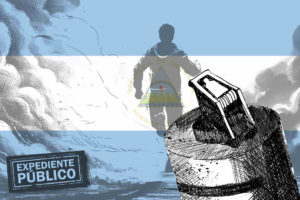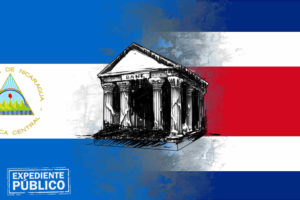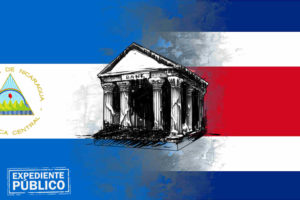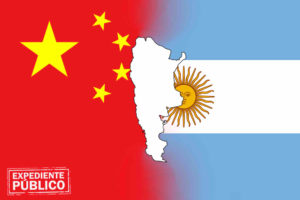*The analyst Sascha Hannig explains how the Chinese leader, Xi Jinping, maintains a ‘mano dura’ regime of repression and censorship.
**His role in history and behavior is that of an emperor who has control over the army and tools of surveillance like never in history.
***Today, China has fewer freedoms and a dangerous nationalist discourse.
Expediente Público
A few days ago, Xi Jinping began his third term as the leader of the People’s Republic of China, becoming the politician with the most years in power since Mao Tse-tung (1949-1976). He has been the dominant leader for ten years, and analysts have begun to refer to him as the new emperor of China.
The Chilean analyst, Sascha Hannig, an expert in Asian affairs and a journalist with a master’s degree in international relations from the University of Hitotsubashi in Japan, warns that Jinping is more authoritarian than his predecessors due to the policies that he has implemented.
In a conference before the Observatory of International Affairs at the Universidad Finisterra de Chile, Hannig recounted the history of China, particularly how China, the world’s second economic power, has gotten where it is today.
Why is Xi Jinping said to be the most authoritarian figure and different from his predecessors? Hannig points out that the first reason is that he has implemented policies “with the idea that China has to stop responding to the international system and instead, guide it and influence it, and put the Chinese view of the world in the hearts and minds of the world and Chinese citizens.”
Read: América Latina: China y sus métodos para infiltrarse en las sociedades
Hannig explains that China is doing that work in parallel with “foreign direct investment, cultural and commercial relations, and making an impact in the media, [carrying out] propaganda, etc.”
“China is the second economic world power and is growing in terms of its international influence, whether through foreign direct investment or otherwise. It participates in international organizations and cultural initiatives related to language, the media, etc.,” Hannig underscores.
A historical overview
But the Chilean academic cannot explain the rise of Xi Jinping without recounting the history of China.
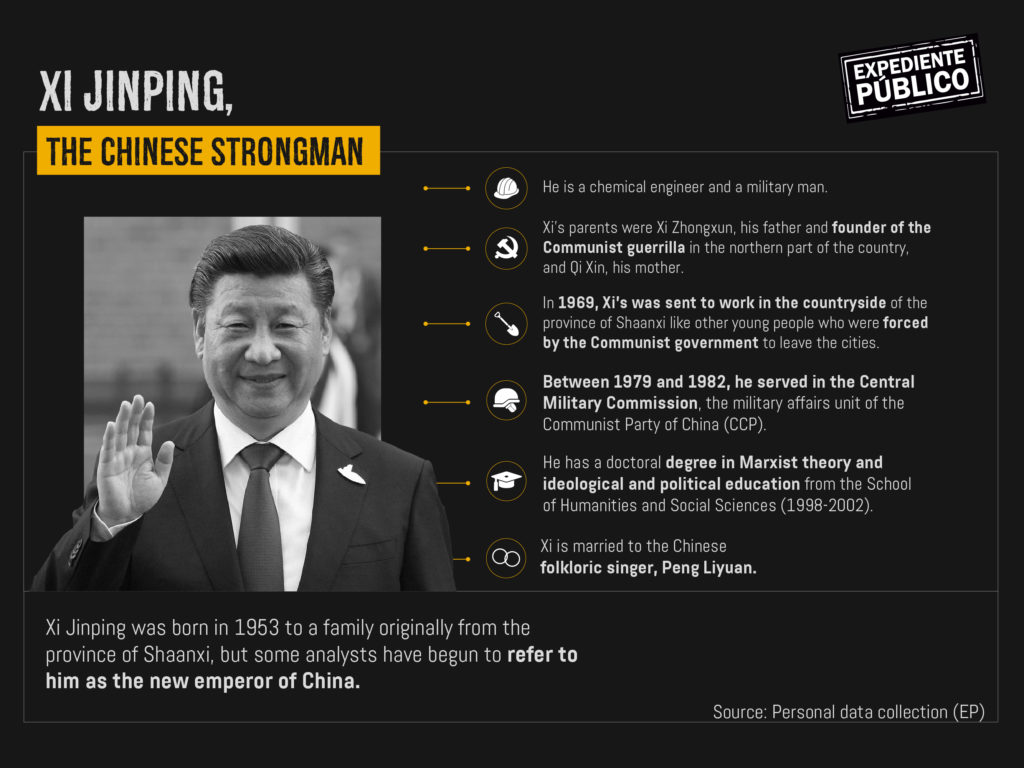
Hannig remembers that until the 19th century, China had a presence in a large part of the region, particularly present-day Russia, Mongolia, and Taiwan.
The expert explains that China extended itself in an important way during the Manchu Dynasty until the dissolution of the empire. Following, it had several problems as part of this extension. Toward the fall of the dynasty, China had begun to restructure its empire.
Later, the Japanese began to show interest in expanding into the mainland through Korea, and Russia had the intention of taking what is present-day Vladivostok and expanding toward the Pacific Ocean.
“Of course, there was a debate regarding the possibility of maintaining a dynasty that also belonged to an ethnic or cultural minority. Following the dissolution of the empire, restoration projects that were democratic and republican began in China with the participation of leaders like Sun Yat-sen, one of the most important figures of this period,” remembered Hannig.
Sun became the first president of the Republic of China. He was part of the Kuomintang (the Nationalist Party), a party that still exists today in Taiwan and represents a large part of the tension between China and the Republic of China or Taiwan.
“Sun was preceded by Yuan Shikai, who declared himself as the new emperor. We see that Xi Jinping is not the first historical figure to compare himself to or be nostalgic for a more supreme leader or emperor. Yuan Shikai had already tried to establish himself as emperor,” she explained.
Later, General Chiang Kai-Shek came into the picture, viewing himself as the heir of Kuomintang and entering into conflict with the communist leader, Mao tse-tung during the 1940s.
“The debate about the role of Kuomintang and the reunification of Taiwan with China continues today. Xi is one of the first leaders in many years to speak of diplomatic and non-diplomatic measures to take Taiwan, which is one of the biggest alerts for the West, particularly the United States,” said Hannig.
Xi’s beginnings
After Mao’s rise to power in 1949, one of the most traumatic aspects of his government was “the great leap forward,” a process of industrialization that ended with famine and caused a population shock, as well as in terms of quality of life for the citizens of China.
Read: Puma Shen, director de Índice de China: “Pekín aprovecha la corrupción política en América Latina”
After Mao, there were many reforms until Deng Xiaoping rose to power, who is known to the world as the great reformist. Deng opened the country to the world, and with this reform, he lifted 800 million people out of poverty.
Jiang Zemin, with the idea of revitalizing China, followed and opened the country to the world but also was the president in power during the Tiananmen Massacre, where dozens of students who had been protesting against the regime for months died.
Hu Jintao succeeded him and remained in power as president until 2013 and was recognized for his open policy toward the West. He was the president that got China into the World Trade Organization and made the Beijing Olympic Games happen.
“Following this period, Xi Jinping came to power and became the first Chinese president or leader following Mao to remain in power for more than ten years. This is why there are comparisons, and propaganda initiatives, using the face of Xi and Mao,” explained Hannig.
Xi was born in 1953 in the province of Shaanxi, a Chinese province that does not have access to the sea. He is the son of Xi Zhong-un, the former vice minister under Mao who had a long connection to the party but that fell into disgrace during the Cultural Revolution, a process of ideological purging that cause millions of deaths and arrests between 1966 and 1976.
“There is a whole mystic that has been created regarding the figure of Xi as a person that started from the bottom of society, went to university, and eventually became a high-ranking member of his party. But all of his family was very involved in the party; his father was vice minister of the country with a long connection to the party but fell into disgrace with the rise of the Cultural Revolution,” remembered Hannig.
The expert on China explained that Xi grew up in a rural part of the Shaanxi province and described him as “very organized with regard to his posture toward the party, obedient, and not a big innovator and that because of that, he kept himself out of trouble.”
In 2008, the Chinese Communist Party (CCP) began a process of purging the country of corruption, which left many candidates out of the running.
“Since Xi held a fairly neutral position within the party, he seized the opportunity, and everyone thought, ‘well, this person is organized, is in good standing, and is unproblematic, so he is a safe option and will allow the process to continue,’ and in that way, he rose to power,” explained Hannig.
Xi’s power
Xi was elected Secretary General of the CCP in November 2012 and assumed power in March of the following year.
“In technical terms, Xi is secretary general, essentially the leader of the militia, and president of the country. He represents the organization less and more functions as Chancellor, especially in an outward way; he is the face of China to the world,” said Hannig.
The academic explained that “since China is a one-party system, the country functions much like a mirror. There is one party that has a secretary general and a central committee that directly works with the State in the development and administration of the country. The State has a vice president, congress, consultative conference, and judicial branch. But unlike what we are used to in the West, there is a connection between the organization of the party and the government.”
Moreover, the People’s Liberation Army is not directly subordinate to the government but rather, to the party, and thus, Xi is its supreme chief.
“The country does not have a direct army because of the one-party system, but rather, there is a relationship between the party and the government,” Hannig underscored.
“This explains why people see Xi as omnipotent and compare him to emperors,” the Chilean academic pointed out.
“One of the things that explain his reelection is that he was tremendously popular in certain aspects: his vision of China for the future, the idea that we do not have to respond to the United States, his vengeance toward Japan, his posture on the conflict with Taiwan, and the idea that China has to reunify the country,” explained Hannig.
Why an emperor?
As we saw in the brief historical account, China has a long history of leaders who declare themselves emperors. But why is Xi considered an emperor unlike his predecessors?

Read more: China y sus niveles de penetración en tres países de Centroamérica
According to Hannig, the first reason is that Xi has implemented a policy that seeks to dominate the political and economic system of the world.
“Xi strongly promotes those who tell a good Chinese story. They want to show the world what they want the world to know,” said Hannig.
His regime has notably reduced Chinese citizens’ freedoms and has established tight control over state-of-the-art technological tools.
“The deployment of propaganda and censorship of the internet have become much stronger,” said Hannig.
“One of the things that Xi has done is promote fanaticism, a very strong nationalist sentiment of loyalty to the party,” explained Hannig. But this also produces local conflicts and religious persecution.
The academic gives an example of a popular parody in which the public compared Xi with Winnie the Pooh.
“Xi’s reaction was to prohibit all internet content in which he was compared to Winnie the Pooh, and this has occurred with each scandal, with each thing,” said Hannig. “This anecdote about such a simple thing as Winnie the Pooh, a state of parody, has turned into censored internet content.”
“Obviously, it has become more difficult for foreigners to renew documents, there have been constitutional changes, purges, and religious persecutions, and there has been a gradual degeneration [of freedoms],” she added.
Concentration camps and repression
Xi has carried out human rights violations and acts of repression, restricted freedoms, and censored the population in an increasingly big way in the country.
Hannig includes the concentration camps in Xinjiang and the persecution of minority groups, especially Muslims, the repression of the Hong Kong protests of 2019, where a law on state security was implemented, and control over Chinese companies and its most emblematic leaders as acts of repression.
“China imposed itself on the elected representatives of Hong Kong, ordering them to be loyal not only to the city but also to the country. Since 2010, they have had to receive Beijing’s approval, which cause a visible change in the way that the city has continued to develop. Since this policy, the city has lost certain media outlets and there has been a persecution of dissidents,” said Hannig.
Following these changes, there has been greater repression of private companies, which were even obligated by Beijing to send the government information from the countries where they operated abroad, apparent in the case of the owner of Alibaba, Jack Ma, who, after criticizing the system, disappeared for months and then was forced to have a low profile.
The pandemic
Xi was re-elected after the brunt of COVID-19 right in the city of Wuhan, China where the pandemic originated.
Hannig says that the reelection came “with a lot of silence because of the quarantine policy that was in place during the COVID-19 pandemic; cities like Shanghai were under lockdown for four months at a time with doors guarded or had people locked up in quarantine camps without the proper distribution of supplies and without the ability to leave in the case of an emergency.”
The academic remembered that close to the reelection of Xi as the leader of the party in October of last year, there was a fire in a building, and since everything was closed off so that people could not leave due to the quarantine measures, the firefighters were also unable to enter, and many people died.
“As a consequence, there was a lot of oppression, first, local and then, organized. There was a lot of international press that can only be compared to that which surrounded the Tiananmen Massacre. The government responded by lowering the intensity of the quarantine, but Chinese citizens began to protest, and many disappeared; one has to remember that China has one camera for every seven inhabitants,” said Hannig.
Read: Índice de China revela los métodos de infiltración del gigante asiático en la sociedad
The consequences
The consequences of Xi’s policies have led many companies to take their production elsewhere since the treatment of foreign companies has changed in China over the last few years.
Corporations, such as Apple, energy companies, and Japanese car companies, in addition to other foreign industries, are leaving the country because they see China as a complicated place to do business. Xi now says that China does not need foreign industries and has emphasized local sectors.
Another problem, according to Hannig, is that “we are seeing a gap between the reported Gross Domestic Product (GDP) and the country’s actual GDP. This is going to have a short-term or long-term impact on the world.”
The academic explains that in the 1990s, China began to see growth in the quality of life in terms of GDP per capita but also began to see more disparities.
“Shanghai has the GDP per capita of the United States, but there are cities of provinces in the middle of the country that have GDPs similar to those of African countries,” she explained.
According to Hannig, the country’s economic growth and its relationship with the world have been affected, but since the pandemic, it has stagnated in an important way, which “can be seen and felt in the country.”
“In fact, today, the conditions for recent university graduates in China are very difficult. There is talk about the ‘996’ working hour system, where recent graduates work from nine in the morning to nine at night for six days of the week,” she explained.
“China has serious problems, but they are invisible because of censorship,” concluded Hannig.


